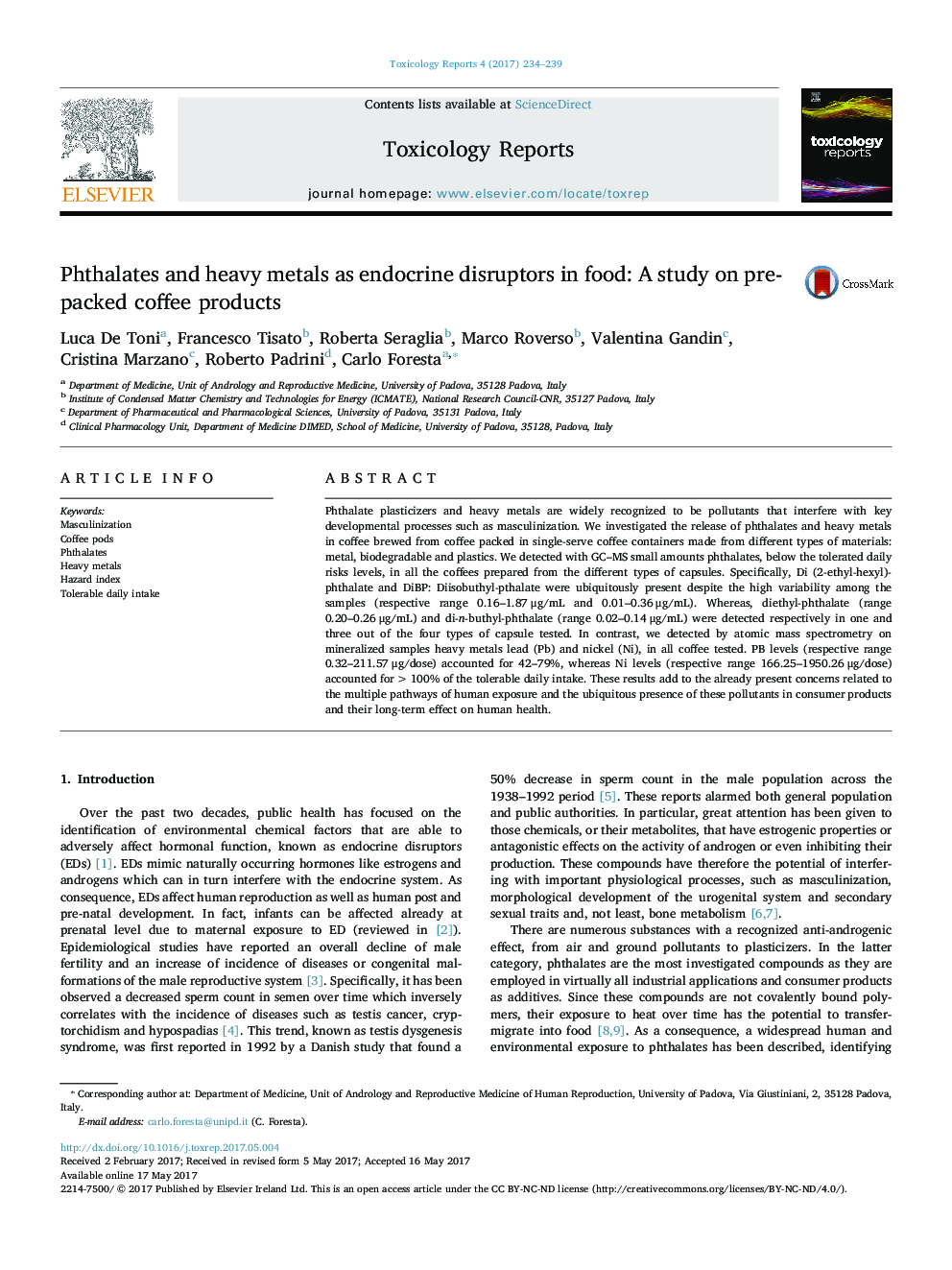| کد مقاله | کد نشریه | سال انتشار | مقاله انگلیسی | نسخه تمام متن |
|---|---|---|---|---|
| 5558661 | 1561190 | 2017 | 6 صفحه PDF | دانلود رایگان |
- Phthalates and heavy metals are used as technological adjuvants for food packaging.
- Phthalates were widely released from any of the assessed pre-packed coffee products.
- Also heavy metals were massively released, even exceeding tolerable daily intake.
- Concerns about the wide exposure of humans to these pollutants from consumer products.
Phthalate plasticizers and heavy metals are widely recognized to be pollutants that interfere with key developmental processes such as masculinization. We investigated the release of phthalates and heavy metals in coffee brewed from coffee packed in single-serve coffee containers made from different types of materials: metal, biodegradable and plastics. We detected with GC-MS small amounts phthalates, below the tolerated daily risks levels, in all the coffees prepared from the different types of capsules. Specifically, Di (2-ethyl-hexyl)-phthalate and DiBP: Diisobuthyl-pthalate were ubiquitously present despite the high variability among the samples (respective range 0.16-1.87 μg/mL and 0.01-0.36 μg/mL). Whereas, diethyl-phthalate (range 0.20-0.26 μg/mL) and di-n-buthyl-phthalate (range 0.02-0.14 μg/mL) were detected respectively in one and three out of the four types of capsule tested. In contrast, we detected by atomic mass spectrometry on mineralized samples heavy metals lead (Pb) and nickel (Ni), in all coffee tested. PB levels (respective range 0.32-211.57 μg/dose) accounted for 42-79%, whereas Ni levels (respective range 166.25-1950.26 μg/dose) accounted for >100% of the tolerable daily intake. These results add to the already present concerns related to the multiple pathways of human exposure and the ubiquitous presence of these pollutants in consumer products and their long-term effect on human health.
98
Journal: Toxicology Reports - Volume 4, 2017, Pages 234-239
